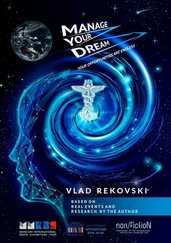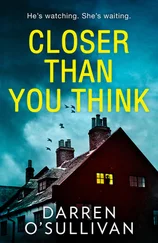Astrid nodded. She had heard talk like this before. She’d been born in the generation where they learned about climate change in geography and science classes from age nine. Heard about it so often that Astrid regarded global warming with the same limp and abstract horror as she did when she thought about the certainty of the sun dying and engulfing the Earth. The last Christmas had been particularly mild, and Astrid had even spotted daffodils sprouting near the wire fence around the churchyard. Everyone discussed the balmy weather and acknowledged their mutual and distant concern about global warming. Astrid sometimes guiltily indulged the thought that she would not be around to see it happen.
‘After being captain of this ship, my main responsibility involves writing reports about the progress and success of this mission and sending them back to Earth in the hopes that more like these will soon follow. Mass off-world colonization. For everyone. Not only the chosen few. I want to make that a reality.’
Astrid stepped further into the room and noticed with a start that Solomon was not wearing any shoes. These were the daily intimacies she’d have to get used to. Living with Solomon Sheppard, Astrid was able to witness the legend up close. To look at the bare soles of the youngest Brit on Mars, and become familiar with his daily routines. In the past two weeks of living on the ship, Astrid had noticed that he prayed five times a day on a mat he laid out in his bedroom. He didn’t drink coffee, but every morning he prepared himself a pot of peppermint tea, which he drank slowly and then cleaned meticulously. He liked jazz. Instead of a morning bell, he blasted John Coltrane’s Interstellar Space through the speakers, so that every morning the crew awoke to the crashing cymbals of ‘Mars’.
‘Was it hard to leave them?’ she asked, changing the subject and nodding at the computer monitor. Solomon shrugged again. They were on London time on the ship but in Houston – where his family had moved to – it was six hours behind.
‘It was hard,’ he said. ‘For Na’imah. But then she knew what she signed up for when she married me.’
Astrid was trying to figure out exactly how old Solomon was. When he’d been selected as the only Brit to fly to the Russian station on Mars, he had also been the youngest astronaut in history, at just twenty-five. Astrid had been eight or nine, then, which made him…
‘You know what that song’s about right?’ she asked. He shook his head, eyes blank and tired. ‘It’s about hope. You know, “the light”? The light that never goes out.’
‘Right.’ He half smiled. ‘Of course. That’s what brought us up here. That’s all that can keep us.’
29.05.12
TWO WEEKS ON THE Damocles and Poppy was already tired of hearing Astrid talk about Terra-Two. She could not imagine the schools of silver fish that lanced through lagoons, or the periwinkle birds’ eggs nested in leaves, or the mountain ranges where the suns never set.
For herself, Poppy couldn’t wait to see the green prospect of Terra-Two in the window of the ship. The thought of taking the shuttle down into the atmosphere and leaving the first human footprints on white alien shores made her stomach quiver with excitement. And yet the finer details of her life on Terra-Two had always been vague. She never understood how it was possible to ache like Astrid for a land she had never travelled. Earth was enough for her.
Earth had always been enough for her, and she realized it only when it was gone.
There was a Portuguese word for it that Poppy knew: saudade . A longing for something that might never return.
After the launch, Poppy had witnessed her first orbital sunrise through the window of the shuttle an hour before they were due to rendezvous with the Damocles . They had been allowed to float out of their seats and gaze out the window at Earth below. For most of their journey the planet had been cast in shadow, a black and swollen ocean. Poppy watched as it tumbled slowly out of the way of the sun. Dawn began as an electric-blue arc of light cresting above the horizon, and when the sun appeared it was a fire-red pea on the perimeter, which burst forth, turning white and filling the porthole with brilliant rays of light. Everyone turned for just a second; even Fae and Igor stopped what they were doing, looked up from their monitors and craned their necks to gaze down at their old home.
There is a strange disassociation that comes from seeing something for the first time in real life when you have seen it thousands of times before on television or in magazines. The Eiffel Tower, the Angel of the North, a total solar eclipse. Poppy had anticipated that she would feel that same detached familiarity when she finally saw Earth. But that afternoon after the launch, in the shuttle, Poppy realized that she had been mistaken. Realized that, in the vast solar system, her planet was the greatest sight to see. Impossible not to marvel at it. To tremble in its light. Whorls of clouds, larger than mountains but delicate as breath, ivory vapour trails, so much dark sea. When she finally beheld it, with her own eyes, and not through satellite images or computer reconstructions, she began to cry. She felt like Lot’s wife as she gazed at the deserts and the sea. Ripples in the sand dunes appeared as black striations against the golden ground. The coastlines were a brilliant chrome blue and the mountain ranges were like scars on the Earth. Poppy felt it for the first time – a scintilla of doubt. Her own sickness, homesickness.
To her relief, in the tumult of the days that followed – when they were settling into the Damocles and every hour was filled with work – she would only remember that feeling whenever she awoke in the night with a jolt and saw, in the porthole of her bedroom, only darkness.
Their days on the Damocles were similar to their final day before the launch. They were expected to wake by 6.30 for a full day of classes, tutorials and three hours of chores required for the maintenance and upkeep of their home. The only free time that Poppy could really enjoy was after dinner, at 8 p.m. The Atlas – the observation capsule near the greenhouse – had become her favourite place to lounge. It was just big enough for two people to sit on the little bench in front of the glass. There was a telescope and a monitor displaying a star map, and when she touched the screen it answered her questions about the constellations. Poppy would climb the ladder up to the little room, look back at Earth and read about Andromeda, Cassiopeia, Fornax, Orion… every one.
She loved watching when the planet rolled in front of the sun, and the cities began to blaze against its shadowed face. Through their telescope, she could pick out London and Lagos and the whole of the east coast of America through a recognisable lacework of roads. By day, the cities were cement-coloured smudges against the land, indistinguishable from the grey-green of suburbs and countryside, but, at night, humanity shouted its existence at the stars. Poppy could tell the population density from the sodium orange belts of light that made up roads, country borders and interstate boundaries. Japanese cities burned blue-green, and a bright sprawl of mercury vapour lamps illuminated the streets along the black hollow of Tokyo Bay. Their commander pointed out Mecca, a patch of light against a jet desert, and the interstate highway that lanced across el Paso. All the places she would never go.
‘No wonder there’s global warming,’ Juno said that night, leaning into the window to take a photograph, ‘when you look at all this. There are so many people. It’s so bright.’
‘I can still see London,’ said Poppy.
Читать дальше






![Theresa Cheung - The Dream Dictionary from A to Z [Revised edition] - The Ultimate A–Z to Interpret the Secrets of Your Dreams](/books/692092/theresa-cheung-the-dream-dictionary-from-a-to-z-r-thumb.webp)





